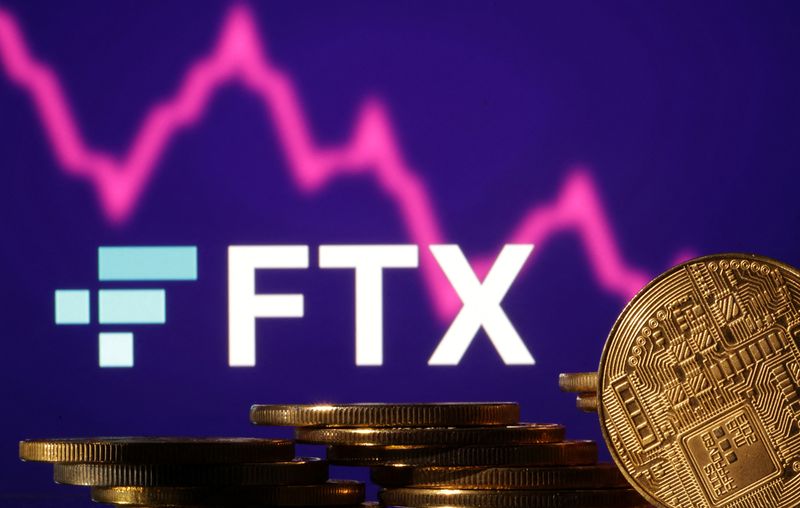© Reuters
Investing.com – Struggling exchange FTX could have more than 1 million creditors, according to a new bankruptcy filing, which indicates the massive impact its collapse has had on cryptocurrency traders.
Last week, when the platform filed for Chapter 11 bankruptcy protection, FTX indicated that it has more than 100,000 creditors with claims in the case.
But in a filing updated Tuesday, the company’s attorneys said, “In fact, there can be more than 1 million creditors in Chapter 11 cases.”
In such cases, the lawyers said, debtors are required to provide a list of the names and addresses of the 20 largest unsecured creditors. However, given the size of its debt, the group intends instead to submit a list of its 50 largest creditors by Friday.
Five new independent directors have been named for each of FTX’s principal parent companies, according to the case file, including former Delaware County Judge Joseph J. Varnan, who will serve as the principal independent director.
Over the past 72 hours, the firm’s lawyers wrote, FTX has been in contact with “dozens” of regulators in the United States and abroad. Including the US Attorney’s Office, the Securities and Exchange Commission and the Commodity Futures Trading Commission.
This year has seen a number of cryptocurrency companies fail, including Celsius and Voyager Digital, as they continue to struggle with falling digital asset prices and resulting liquidity problems.
In previous bankruptcies, traders on these platforms were classified as “unsecured creditors”, meaning they would likely be behind a long line of entities seeking payment, from suppliers to employees.
Before its collapse, FTX offered both amateur and professional traders to invest in cryptocurrencies, as well as trade more complex derivatives. At its peak, investors valued the platform at $32 billion and it had over one million users. The company’s bankruptcy had a chilling effect on the industry, as investors sold their positions and moved funds from other platforms.
On Monday, the CEOs of Binance and Crypto.com tried to reassure investors about the financial strength of their businesses. Binance’s Changpeng Zhao said his platform has seen only a slight increase in withdrawals, while Crypto.com president Chris Marsalek said his firm has a “very strong balance sheet.”
Confusion of client funds
FTX filed for bankruptcy on Friday as concerns about its financial health led to increased withdrawals and a decline in the value of its native FTT token. Sam Bankman Fried, founder of FTX, stepped down as CEO and was replaced by John J. Ray.
FTX initially approached Binance for a bailout, but the deal fell through when Binance backed down citing reports of mishandling of customer funds and alleged US government investigations into FTX. Over the weekend, FTX was hit by a cyber attack that led to the theft of more than $400 million worth of tokens.
“FTX faced a severe liquidity crisis that necessitated these cases being dismissed on an emergency basis last Friday,” the attorneys wrote in the filing Tuesday. “Questions have arisen about Mr. Bankman-Fred’s leadership and management of the complex array of businesses at FTX and the companies under his management,” they added.
CNBC reported Sunday that Alameda Research, the subsidiary of FTX, borrowed billions in client funds from the platform in order to have enough liquidity to process withdrawals.
In general, mixing and trading client funds with other parties without explicit consent is illegal, according to United States Securities Law. It also violates the FTX Terms of Service.
Banker Fried declined to comment on the allegations, but said the company’s latest bankruptcy filing was the result of problems with leveraged trading positions.
Speaking to CNBC, Jamie Burke, CEO and founder of Web3-focused venture capital firm Outlayer Ventures, said: “I think it’s increasingly clear, even at a fundamental level, that this type of conflict of interest between a market maker and a platform is critical. Very immoral.”
In a series of digital tweets on Twitter this week, Bankman Fried wrote the word “thing” followed by the letters “h”, “d”, “w” in detached tweets.
He ended the thread on Tuesday with, “10) Illegal advice. Non-financial advice. That’s all I remember, but my memory may be wrong in parts.”


